Danny was a brilliant scholar who was committed to social justice and educational equity. @anniewoff.bsky.social, @waltecton.bsky.social, and I couldn't have been luckier to have Danny in our hiring cohort. 1/3
Danny was a brilliant scholar who was committed to social justice and educational equity. @anniewoff.bsky.social, @waltecton.bsky.social, and I couldn't have been luckier to have Danny in our hiring cohort. 1/3
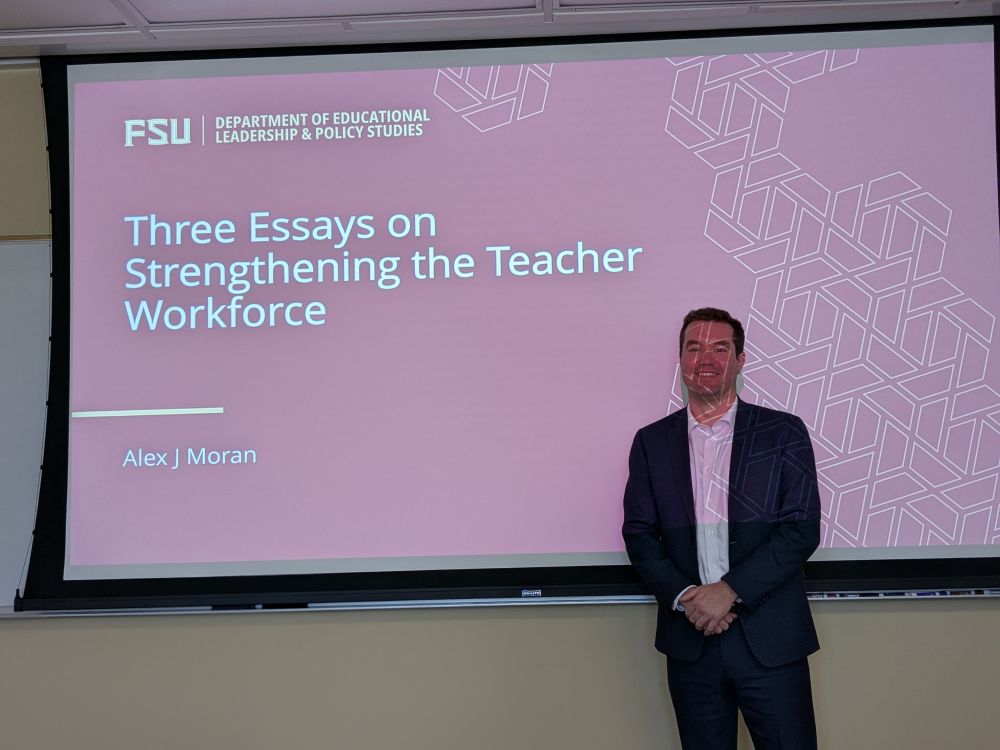
doi.org/10.1162/edfp...
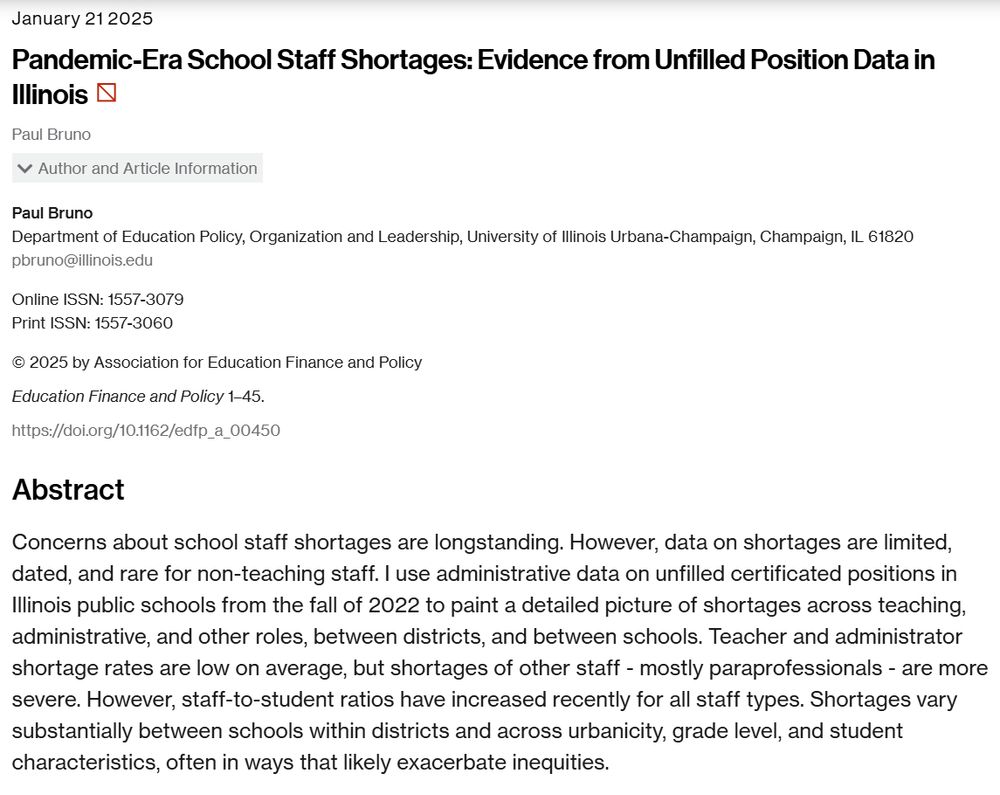
doi.org/10.1162/edfp...
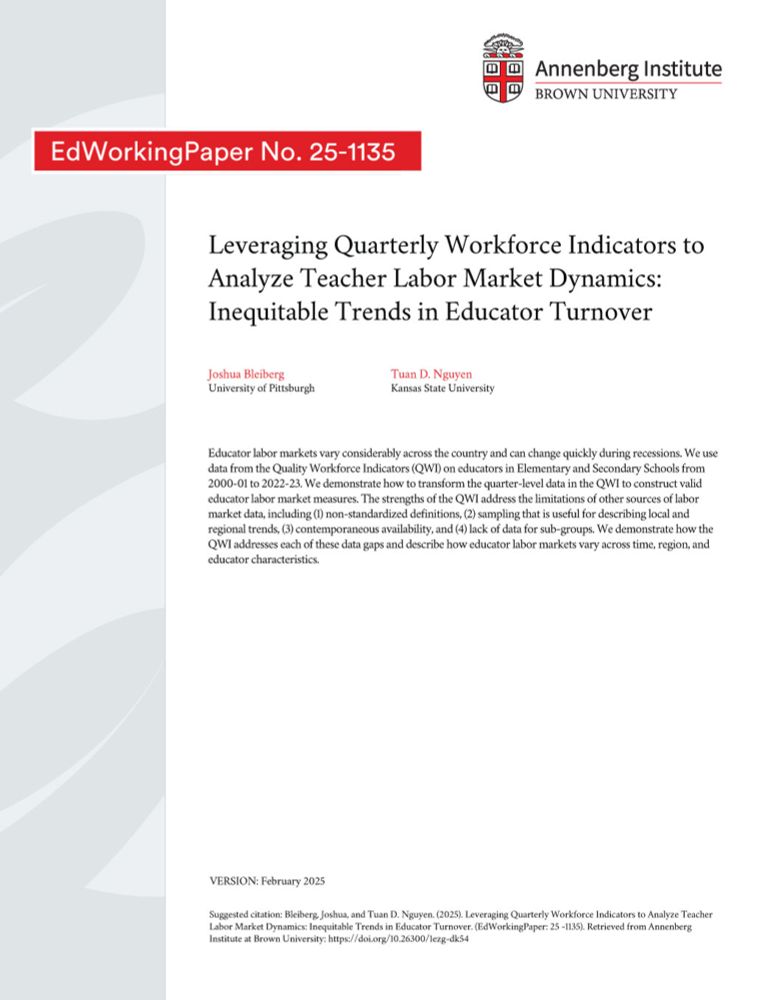

Check it out here: journals.sagepub.com/doi/10.1177/...
Journal link: tinyurl.com/4rp8e5sb
Ungated: tinyurl.com/4dwnzy3y
1 pager: tinyurl.com/y7w9jufy

Check it out here: journals.sagepub.com/doi/10.1177/...
Please amplify and feel free to invite others!
Please amplify and feel free to invite others!
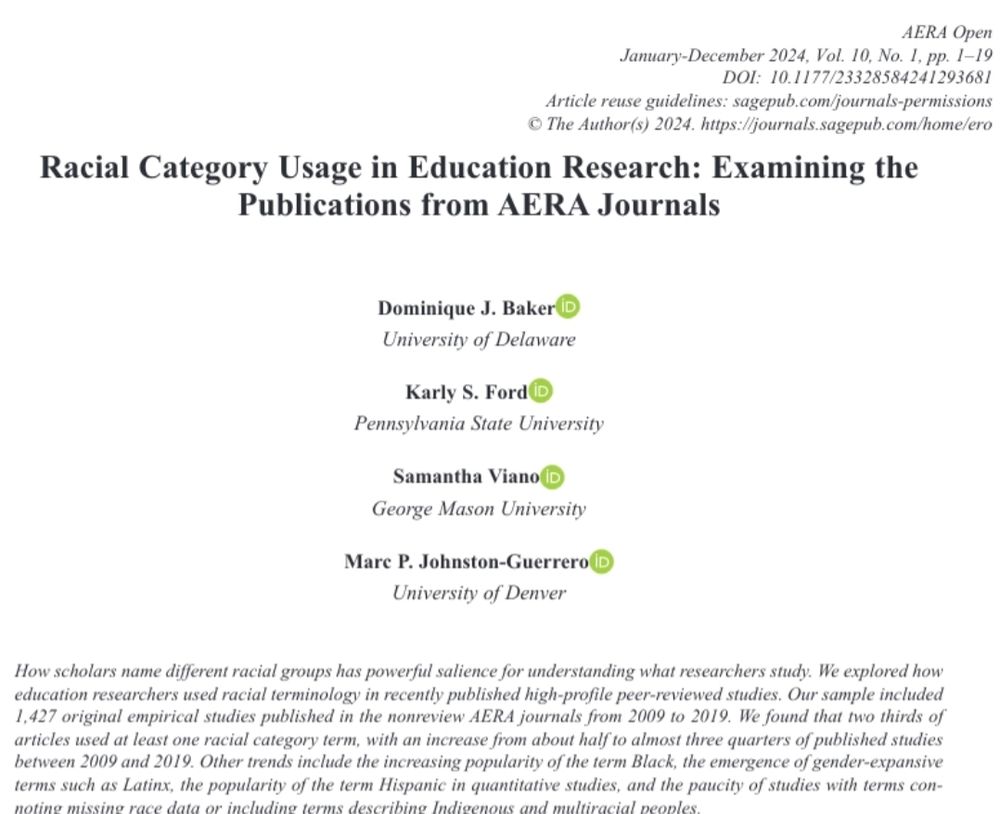
We coded a census of original research from AERA journals (2009-19) to surface hidden patterns in authors use racial terminology
journals.sagepub.com/doi/10.3102/...
1/N
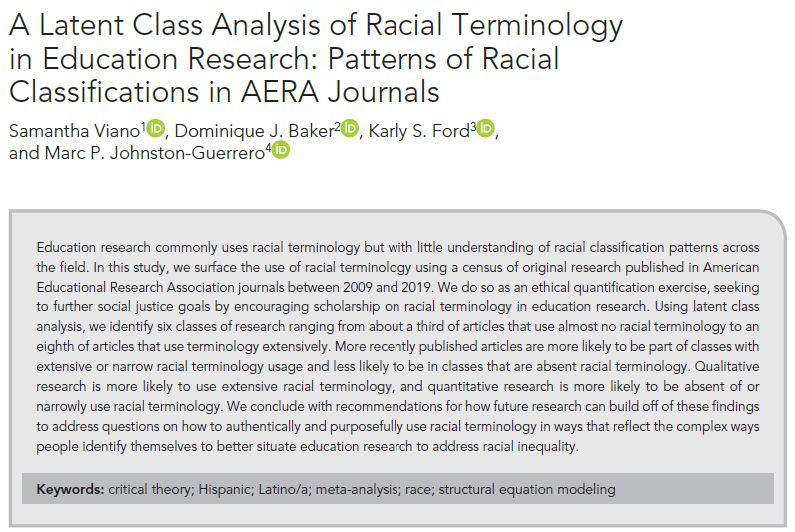
We coded a census of original research from AERA journals (2009-19) to surface hidden patterns in authors use racial terminology
journals.sagepub.com/doi/10.3102/...
1/N

www.air.org/sites/defaul...
www.air.org/sites/defaul...
www.brookings.edu/articles/the...
Based on our working paper at edworkingpapers.com/ai23-815

www.brookings.edu/articles/the...
Based on our working paper at edworkingpapers.com/ai23-815




